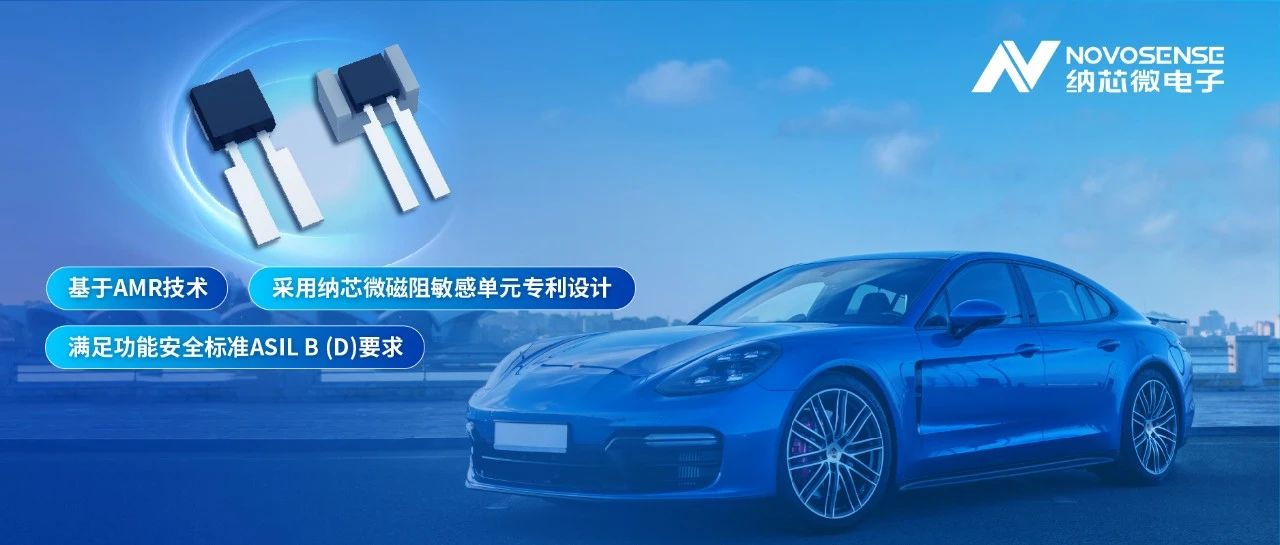NOVOSENSE Launches Innovative AMR-Based Wheel Speed Sensors for Enhanced Automotive Safety
Shanghai (Gasgoo)- NOVOSENSE Microelectronics (NOVOSENSE), a leading Chinese analog and mixed-signal IC design company, recently unveiled its latest wheel speed sensor utilizing AMR (Anisotropic Magneto Resistance) technology. The announcement was made through a post on the company’s WeChat account on January 21.

Photo credit: NOVOSENSE
The NSM41xx series by NOVOSENSE integrates advanced magnetic sensing units with ASIC (application-specific integrated circuit) technology to deliver precise monitoring of wheel speed. These sensors offer robust support for crucial automotive control systems like anti-lock braking systems (ABS), electronic stability programs (ESP), and electric power steering (EPS), thereby enhancing vehicle safety and stability.
The NSM41xx series ensures accurate wheel speed measurement in various driving scenarios, including urban stop-and-go traffic, extended highway cruising, and challenging terrains like mountain slopes and rough roads. This reliability ensures consistent safety performance under all conditions.
Utilizing AMR technology, the NSM41xx series boasts enhanced sensitivity, thanks to its unique design structure and circuit architecture. These features provide exceptional anti-interference capabilities in complex electromagnetic environments, guaranteeing precise and stable measurement data.
The magnetic sensing unit of the series incorporates NOVOSENSE’s specialized magneto resistance design, optimized algorithms, and advanced packaging techniques. This combination ensures reliable performance even in extreme driving conditions, meeting the demands for high-sensitivity wheel speed measurement.
Operating in a wide temperature range of -40°C to 150°C, the sensors ensure precise and stable functioning of the vehicle’s control system across diverse climate conditions.
Equipped with advanced vibration suppression and signal tracking algorithms, the NSM41xx series maintains high-precision wheel speed signals even on rough road surfaces. This capability ensures consistent measurement accuracy under challenging conditions, providing reliable support for critical vehicle safety systems.







